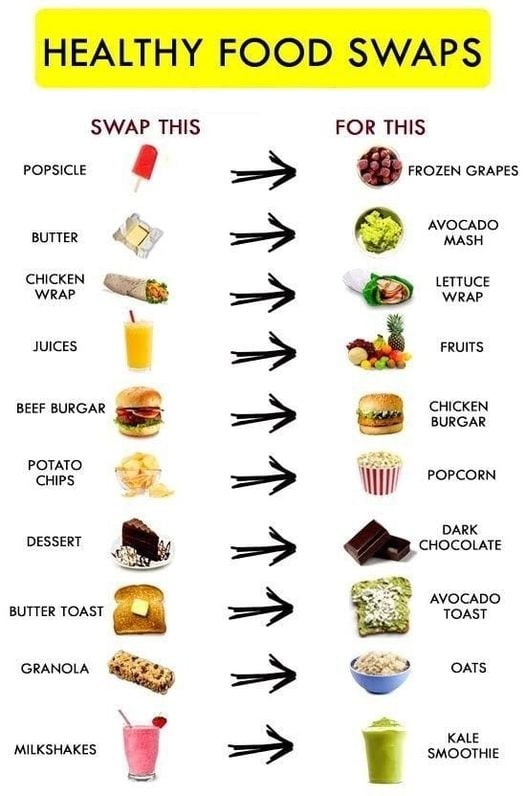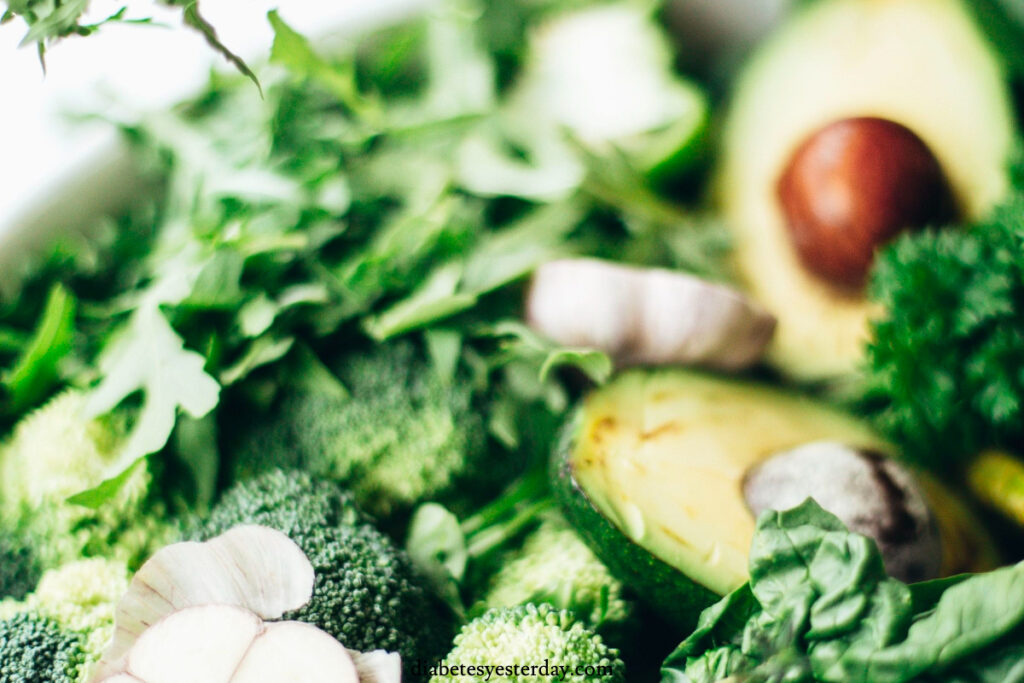Science Proves the Overweight-Diabetes Relationship
I know you heard this before, but I’ll mention it once again.
When we research and look at clinical studies, we will find that overweight people have a higher incidence of type 2 diabetes than those who carry a healthy weight.
Science also says that your body makes plenty of insulin to regulate healthy blood sugar levels. However, the cells in your body, for one reason or another, become resistant to insulin.
If you overeat consistently, it will lead to obesity, which will eventually trigger pre-diabetes and ultimately type 2 diabetes.
How do you know if you’re overweight and need to lose some pounds?
The answer is in your body mass index, or BMI. If you have a good scale, it will factor in your height and weight to estimate how much body fat you have.
If you’re underweight: 18.5
Normal/Healthy weight: 18.5–24.9
Overweight: 25-29.9
Obese: Over 30
You can also measure your waistline; women should not measure more than 35 inches and men 40 inches.
Manage Type 2 Diabetes with Plant-Based Whole Foods
Let’s talk about the topic of whole foods.
Whole foods:
- have been proven to prevent and reverse the effects of Type 2 diabetes.
- are foods that are not processed or refined and contain no artificial additives, colorings, flavors, salts, fats, and sugars.
- are all-natural and include fresh fruits and vegetables, whole grains, beans and legumes, and fresh herbs.
- can help prevent most diseases and provide nutrients that are needed for the body to work at optimal levels.
Processed foods, on the other hand, are what cause weight gain and obesity. These types of foods are missing the vital nutrients that
are found in food in its natural form and are stripped out.
Eating too much-processed foods over a long time is what causes Type 2 Diabetes and other diseases due to lack of nutrients.
So, what foods should you eat and not eat to manage your glucose levels to keep them in the safety zone? The answer is carbohydrates.
The Importance of Carbohydrates and Type 2 Diabetes
Research says that a low-carb diet will assist in achieving healthy weight loss.
But, there are good carbohydrates (complex carbs) and bad carbs (simple carbohydrates).
Your body absorbs simple carbohydrates quickly, which causes blood sugar levels to rise.
To maintain healthy blood glucose levels, you will need to avoid foods that you are accustomed to eating regularly.
- deli meats
- foods with lots of sodium
- any food made with refined white flour
- candy
- cake
- pastries
- fried foods
- white potatoes and rice
- corn and peas
Do you eat white potatoes, macaroni with cheese, pasta, rice mixed with peas, or some form of white bread every week?
Spaghetti was once an all-time favorite carb for me to cook and eat regularly.
It’s easy and quick to make, especially when I am not up to cooking after a hectic day at work. Little did I know that quick and easy cooking with
the wrong carbohydrates is what leads to weight gain and eventually imbalanced blood sugars.
Another thing we need to pay attention to is fruit juices, canned fruit syrup, and any foods made with refined sugar.
There’s no need to become overwhelmed by all of this; just remember the reason(s) why making a diet change would be more beneficial for
you, then challenge yourself to eat something healthier every day.
You can start by eliminating one or more of the unhealthy foods that you consume on the regular, for a day, week, month or so.
When successful at it, go for a longer period until you no longer crave it. Then, just remove another unhealthy food from your diet.
[click_to_tweet tweet=”A little progress made daily leads to big results.” quote=” A little progress made daily leads to big results.”]
Complex Carbohydrates and Type 2 Diabetes
Complex carbohydrates are more difficult to break down. This is a more natural process and how our bodies are designed to digest the foods
we need for optimum health. Complex carbs contain plenty of healthy nutrients, minerals, enzymes, vitamins, and other natural nutrients your
body craves and needs.
And guess what? Complex carbohydrates are usually plant-based foods that are also high in fiber. Fiber is recommended for
diabetes management, as it helps regulate healthy body weight, lowers cholesterol levels, controls blood sugar levels, and reduces the risk of
developing heart disease. Way to go!
When you eat enough complex carbohydrates, you will feel full longer. This can help reduce calories and assist with weight loss and weight
management.
You’ll find complex carbohydrates mostly in fruits, vegetables, nuts, and whole grains.
In addition, making the switch to whole-grain foods instead of refined grains has also been proven to help lower blood glucose and insulin levels.
Type 2 Diabetes and Plant-Based Fiber
Soluble fiber is another dietary material that is used in the body and found naturally in other foods. Fiber is essential for the
body as it helps the digestive tract move.
Soluble fiber is the main fiber that works best for diabetics. It traps sugar, allowing it to enter the blood more slowly, which
helps balance blood glucose levels. Soluble fiber can be found in many fruits, vegetables, seeds, grains, and legumes which are all whole foods.
You can eat baked sweet potato, whole grains, quinoa, brown rice, millet, or amaranth to get more fiber.
Healthy Fats and Type 2 Diabetes
I know that the word fat has a negative connotation, but fat is important to include in our diets. It’s important to eat enough
monounsaturated fat. Without fat in our diet, we won’t be able to absorb nutrients healthily.
These include omega 3’s and monounsaturated fats from plant-based foods. Be sure to read labels to avoid trans and
saturated fats. You can get healthy fats from foods like avocados, nuts, and plant oils, such as coconut, olive, and avocado oils.
Foods that are high in saturated fat will spike your blood sugar level. You’ll find saturated fat in fatty meats:
- pork
- lamb
- poultry with skin
- lard and cream
- butter
- cheese
- beef fat
Watch out for baked goods, cooking oils, and baking chocolate.
Eliminate Junk Foods to Manage Weight and Type 2 Diabetes
Junk foods are processed foods that are high in fat, low in fiber, low in nutrients, and high in salt and sugar. I’m sure that we are all guilty of adding
junk foods to our shopping carts when we shop for groceries.
I’ve decided not to take a trip down the snack aisle, and not to pick up any snacks on my way to the cashier.
I’m not saying this is easy to do because this is a habit that needs to change. We should keep in mind that these snacks are strategically placed in
certain areas of the store to psych us into buying them. Just say NO and keep moving! 🙂
Speaking of junk food, potato chips were once my “go-to” snack. Upon leaving work, on my way to pick up my daughter
from daycare, I would devour a large bag of chips almost every day. For some reason, I was unusually hungry and craving for
them. To eliminate eating too much salt I decided to upgrade to “no salt chips” Really Elaine, are you kidding me? (SMH). The good news is
that I eventually overcame eating them.
Can you remember the lingo for a particular potato chip brand? “I bet you can’t eat just one.” I won’t dare!
Swap This for That to Balance Blood Glucose
You can make simple swaps to eat healthier food as a snack. For example, exchanging a bag of potato chips for baked sweet potatoes and having
fun with the toppings, or instead of eating too much ice cream try drinking a low-carb green or protein smoothie.
If you don’t have the time to blend or stop at the smoothie shop on your way to work, just add whole fruit to your lunch bag.

The Best Plant-based Proteins for Balanced Blood Sugar
Plant-based protein-rich foods contain little or no carbohydrates to affect blood sugars and can also help to slow down the absorption of sugars
in carbs.
Tofu, tempeh, nuts, seeds, chickpeas, lentils, and certain grains all provide an abundance of vitamins and minerals and are great choices to eat
when seeking to improve blood glucose levels.
The International Diabetes Federation agrees with other global health authorities when they say type 2 diabetes, the form of diabetes diagnosed
in 90% to 95% of all diabetes patients, is entirely preventable by eating predominantly a plant-based diet. If you have not been diagnosed with
prediabetes or diabetes, adopting a healthy plant-based diet now can keep you from developing this serious health condition.
Check with your healthcare provider before making any new changes in your diet.
[click_to_tweet tweet=”When you change what you eat, your blood glucose levels change.” quote=” When you change what you eat, your blood glucose levels change.”]



